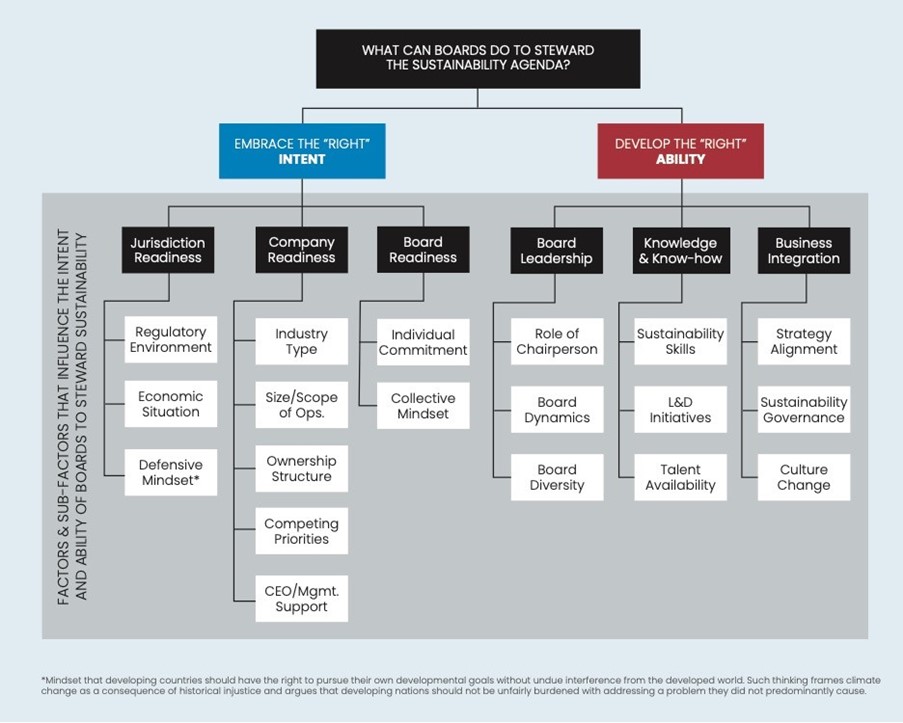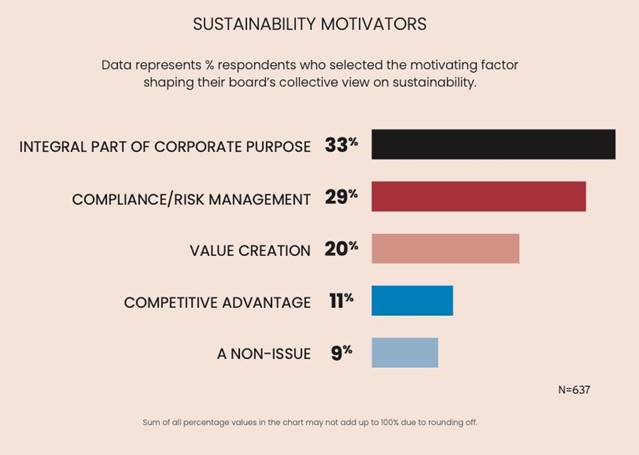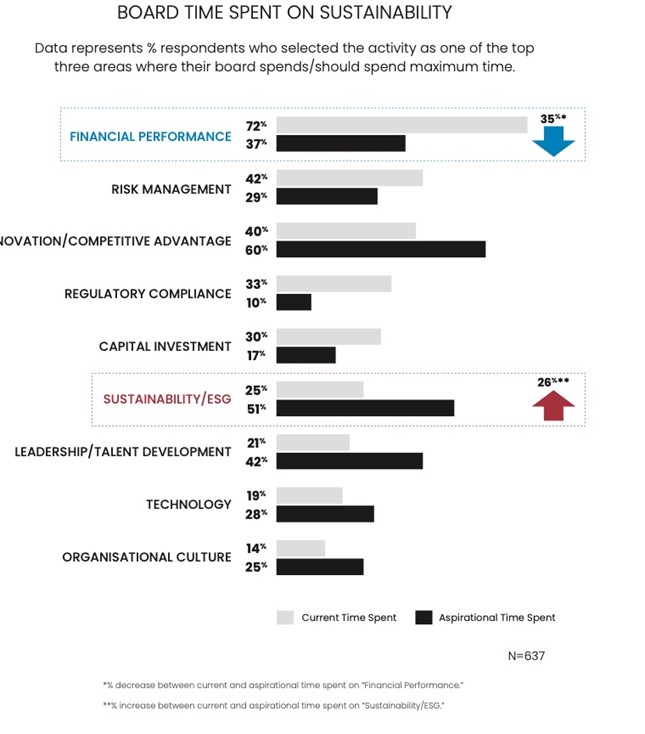As the regulatory landscape surrounding environmental and social sustainability evolves rapidly, how does a board manage the demands of a wide group of stakeholders?
An ESG (environmental-social-governance) approach has been the preferred framework for organisations. However, this may not be sufficient to respond to the increasing risks and stakeholder expectations, as well as to support boards to look beyond regulation to align profit with purpose and create long-term value. A new research report from Stewardship Asia Centre on Boards as Stewards of Sustainability provides some fascinating insights into the gap between the sustainability intent of boards and their focus and ability to drive sustainability.
Directors Australia was the Australian partner for the research study which surveyed and interviewed board leaders across 11 countries in the Asia-Pacific region. Interviewee directors identified key roles for boards to successfully guide, steer and steward sustainability initiatives to ensure long-term value creation including:
- setting the tone on the top with a clear strategic vision that integrates sustainability principles
- guiding management to embed sustainability into the organisation’s core strategy and operations
- creating a culture of shared responsibility and accountability for sustainability
- reporting and compliance to shareholders and other stakeholders
- providing rigorous oversight to ensure compliance with regulatory requirements and ethical standards, and
- Seeking stakeholder alignment.
The interviews also identified that boards need to possess both the right intent and ability. Intent refers to the mindset, values and purpose that boards demonstrate in genuinely tackling global challenges while creating value for all stakeholders. Ability entails the capability of boards to integrate sustainability into the business strategy while possessing the necessary skills, leadership, governance and processes to drive the sustainability agenda effectively.

However, the survey of 637 Asia-Pacific board directors identified the following three takeaways:
- Sustainability is seldom a top priority for boards: In the Asia-Pacific region, 21% discussed sustainability in every meeting, with many addressing it infrequently or not at all throughout the year. In the Pacific subset of the data covering Australia and New Zealand, 32% discussed sustainability in every meeting. In Australia, the top two sustainability governance models were the full Board and an ESG Committee and the top drivers of board action on sustainability were society/community and customers.
- There is lack of intent and ability: The survey data suggested that board leaders may encounter various biases that shape their perspectives and influence their approach to sustainability. These biases included short-termism, profit maximisation, stakeholder bias and risk aversion. It also identified several obstacles impeding progress including lack of information and deep knowledge, diverse stakeholder interests and difficulty in recruiting directors with sustainability expertise.
- The heart, however, is in the right place: The survey data showed that 1 in 3 board leaders viewed sustainability as an integral part of organisational purpose, and 1 in 3 viewed it as creating value or a competitive advantage.

There was also a significant number of surveyed directors who wanted to dedicate more Board time to sustainability.

Directors can take various actions to move towards being stewards of sustainability. A great starting point is to reflect on the board’s focus on sustainability and identify any gaps in intent and ability. This can be undertaken as a stand-alone exercise, or form part of your strategic planning, governance evaluations and board skills matrix assessments.
For governance advice, recruitment advice, or support facilitating a strategy workshop, contact Directors Australia here or call 1300 890 267.






